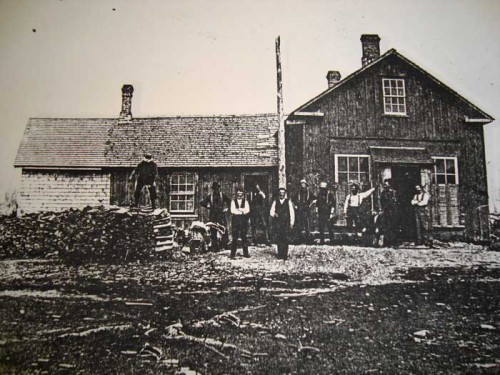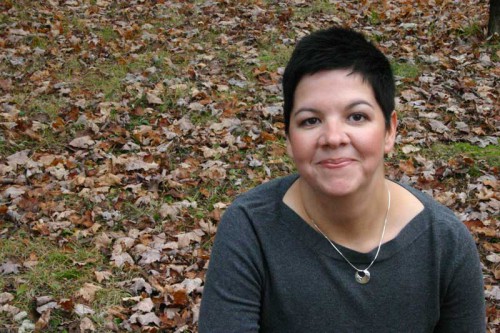Based on 1850 agreement,treaty money still $4/year
TORONTO––It’s been 162 years since the chiefs and principle men of the Anishinaabe First Nations agreed to share their territory and resources under what has since become known as the Robinson Huron Treaty of 1850. Since that time, the descendants of those leaders have never received an acceptable accounting of the revenue and its disbursements. What those descendants have received is an annual payment of about $4 per person––the supposed value of the resources and lands in 1850––without a raise or adjustment since 1874, despite what the Huron Robinson chiefs say is an explicit reference in the treaty indicating that annuities would increase if the resource revenue generated from the territory produced “such and amount as to enable the increase without incurring a loss.”
“We have chosen today—the 162nd anniversary of the signing of the Robinson Huron Treaty—to declare that our people are tired of living in poverty, we want our fair share,” said Angus Toulouse, spokesman for the chiefs. “Today’s Robinson Huron Treaty chiefs and councils intend to ensure that the Crown lives up to its obligations under the treaty. The Robinson-Huron Treaty anticipates and provides economic benefits for us in perpetuity. The annuity was intended to be our revenue stream, our share of the wealth generated by revenues from our territory, yet many of the beneficiaries live in poverty. This is not what our ancestors bargained for.”
Under the 1850 agreement, the Anishinaabek agreed to share some 35,700 square miles of territory, including some of the richest mineral resources ever to be exploited on the planet along with vast stands of timber numbering in the many millions of board feet. To suggest that the $4 payments are a fair recompense for those resources defies credulity, suggest the chiefs in demanding a full accounting.
“This is a serious, long-standing breach of our treaty and a breach of fiduciary obligation on the part of the Crown,” said spokesperson Chief Dean Sayers of the Batchewana First Nation of Ojibwes. “Canada’s largest export to the world is our resources and both the Ontario and national economies benefit, but we see nothing from this except for the annual $4 dollar payment. That’s grossly inadequate; we want the Crown to negotiate a fairer share with us.”
“I am holding out hope that the Crown will choose to negotiate and engage in negotiations to settle our claim,” he said. “We are in for a battle that could take a lot of time. I urge our citizens to be patient and to continue their support.”
“This day is a long time coming,” said Grand Council Chief of the Anishinabek Nation Patrick Madahbee. “I hope every beneficiary of the Robinson Huron Treaty joins me in saying ‘miigwetch’ to our Robinson Huron chiefs for taking this gigantic step together.
“The treaty is pretty clear that the annuities would increase when the resource revenue generated from the territory increased,” said Grand Chief Madahbee.
Grand Chief Madahbee is very familiar with this brief, which is hardly surprising, as he was among those who initiated the process more than 30 years ago. “It couldn’t be plainer that the territory has generated vast amounts of revenues from forestry, mining and other resource development,” he said. “Still we receive $4 per year. That is unfair and not what we bargained for.”
The Robinson Huron Treaty was entered into on September 9, 1850, 162 years ago. The Notice of Claim was to be served on the Lieutenant Governor of Ontario, The Honourable David Onley, and on the Governor General of Canada, The Right Honourable David Johnson.
“It’s a good case,” said Wikwemikong Chief Duke Peltier, whose focus over the past several years has been his own community’s land claims negotiations.
Although Wikwemikong itself was not a signatory of the Huron Robinson Treaty, many of that community’s residents are included in the negotiations due to the 1968 amalgamation of the South Bay and Pointe Grondine reserve lands into the Manitoulin Unceded Reserve-which Chief Peltier noted was used as one of the names for Wikwemikong.
“It’s complicated legally,” admitted Chief Peltier. The main goal of Monday’s serving of notice was to bring the federal government to the negotiating table. “Whether they are willing to come to the table is another story.”
The 1874 setting of the annuity given out to the beneficiaries predates the enactment of the Indian Act by two years, noted Chief Peltier, surmising that there must have been an assessment of the value of the lands carried out post-confederation.
Since then, there has been no updating of the promised annual stipend.
The chiefs at all levels are urging their people to remain calm and patient in the face of negotiations.
“I am holding out hope that the Crown will choose to negotiate and engage in negotiations to settle our claim,” said Chief Day. “We are in for a battle that could take a lot of time. I urge our citizens to be patient and to continue their support.”




